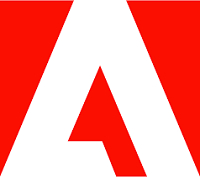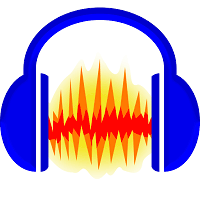Yes, most podcast editing software can be used on numerous devices and platforms. Users can modify their podcast episodes on any computer, tablet, or phone with an internet connection. Some software also includes a mobile app for convenient editing on the fly. Furthermore, these tools are frequently interoperable with both Mac and PC, allowing users to transfer between devices smoothly.
List of Best Podcast Editing Software
Adobe PodCast is a audio editing solution designed specifically for podcasters. This intuitive tool offers powerful noise reduction features and seamless integration with Adobe Creative Cloud for a streamlined production process. Elevate the quality...Read More Adobe PodCast
Podcastle is a audio production software for podcasters and content creators. With its user-friendly interface and advanced AI features, Podcastle streamlines the recording and editing process, ensuring high-quality results for beginners and professi...Read More Podcastle
WavePad is a audio editing software that revolutionizes the industry. Take charge of your audio recordings and flawlessly enhance them with our dynamic features. With compatibility for various formats and an impressive range of professional effects,...Read More WavePad
SquadCast.fm solution for remote recording for podcasters and content creators. Experience superior audio quality, easy team collaboration, and seamless integration for professional-grade recordings. Say goodbye to technical issues and hello to an in...Read More SquadCast.fm
Podbean is a podcasting platform that simplifies the podcasting journey for creators. Its user-friendly tools, detailed insights, and smooth integration with popular third-party apps help maximize audience growth and revenue potential. Whether youre...Read More Podbean
Adobe Audition - software offering a wide range of tools for creating, editing, and restoring audio. Its impressive features include multitrack support, visual displays for waveforms and spectral analysis, and user-friendly sound design options. Idea...Read More Adobe Audition
Experience seamless content creation with Zencastr solution for podcasters, content creators, and interviewers. With advanced recording capabilities, user-friendly editing tools, and AI technology, Zencastr simplifies the distribution process and hel...Read More Zencastr
Anchor by Spotify is a Podcast Software designed for SMEs, startups, agencies, and enterprises. This all-in-one solution offers a user-friendly Dashboard, seamless API integration, effortless Audio Recording, dependable Hosting services, and hassle-f...Read More Anchor by Spotify
Descript is the software that revolutionizes audio and video editing with its intuitive interface. With advanced transcription features, easy multi-track editing, and screen recording capabilities, Descript is a tool for seamless workflow and flawles...Read More Descript
Hindenburg is a audio editing software designed for storytellers, journalists, and podcasters. Simplify your production process with its user-friendly interface and powerful tools. Enhance your audio content effortlessly and create exceptional result...Read More Hindenburg
MAGIX Music Maker solution for effortlessly capturing your musical ideas. This versatile software allows you to connect your microphone, USB keyboard, drum pads, or guitar and start creating music in a snap. With Music Maker, you can easily sing, rap...Read More MAGIX Music Maker
Audacity is a multi-platform audio editor and recorder designed for Windows, Mac, and Linux. It is a collaborative effort of volunteers, and offers user-friendly tools for editing, mixing, and recording audio. Its open-source nature makes it a budget...Read More Audacity
GarageBand is a music production software exclusively designed for MacBook users. With an expansive sound library featuring a wide range of instruments, vocals, guitar samples, and a diverse selection of session drummers and percussionists, GarageBan...Read More GarageBand
Studio One is a music production software that combines the best of traditional studio recording and modern beat-making techniques. With its user-friendly interface, anyone can easily turn their musical ideas into professional tracks. This powerful t...Read More Studio One
Learn More About Podcast Editing Software
- What Is Podcast Editing Software?
- What Are The Recent Trends in Podcast Editing Software?
- Benefits Of Using Podcast Editing Software
- Important Factors To Consider While Purchasing Podcast Editing Software?
- What Are The Key Features To Look For In Podcast Editing Software?
- Why Do Businesses Need Podcast Editing Software?
- How Much Time Is Required To Implement Podcast Editing Software?
- What Is The Level Of Customization Available In Podcast Editing Software?
- Which Industries Can Benefit The Most From Podcast Editing Software?
- Conclusion
What Is Podcast Editing Software?
Podcast editing software is a computer application that helps you create, edit, and produce podcasts. It enables podcasters to easily record, arrange, and enhance audio files. This software has a number of capabilities for recording, mixing, adding effects, and cutting or splicing audio samples to make a smooth and professional-sounding podcast. When it comes to selecting the best podcast editing software, there are several important variables to consider.
For starters, the program should be simple and easy to understand and use. It should also have a diverse set of audio editing tools and effects to improve the overall quality of the podcast. Additionally, compatibility with numerous audio formats and the capacity to handle many tracks at once are key qualities to look for. Audacity, Adobe Audition, and Hindenburg Journalist are among the most popular podcast editing software alternatives.
Audacity is a free and open-source software ideal for novices with minimal editing capabilities. Adobe Audition is a more complex and professional-level software that includes a variety of tools and effects. Hindenburg Journalist is primarily built for podcasters, with a shortened workflow and simple interface. In addition to the features and price, you should evaluate the software's compatibility with your computer's operating system and the technical assistance given by the software manufacturer.
Some software alternatives provide extra functions such as automated editing, noise reduction, and file sharing. Overall, investing in good podcast editing software can significantly improve the quality of your podcast and streamline the production process. So, take the time to research and compare many possibilities to choose which one best meets your demands and budget.
What Are The Recent Trends in Podcast Editing Software?
Podcasts have grown in popularity in recent years, creating a demand for fast and user-friendly podcast editing tools. As a result, the market for podcast editing software has become increasingly competitive, with new innovations and trends emerging to meet the needs of podcast creators.
Buyers of podcast editing software should be aware of the following current trends:
1. Cloud-Based Editing: As remote work and collaboration have grown in popularity, many podcast editing software now includes cloud-based capabilities that allow many users to edit and collaborate on a podcast from different places. This function not only promotes a more efficient workflow, but also ensures that the most recent version of the podcast is always available.
2. Automated Editing Tools: Noise reduction, volume leveling, and audio cleanup are examples of automated editing tools that can simplify and speed up time-consuming manual editing operations. These tools not only save time but also increase audio quality, making your podcast sound more professional.
3. Mobile Editing Capabilities: Because many podcast creators record their episodes on the go, editing software that is mobile-friendly is required. Recent developments have seen podcast editing tools available for mobile devices, giving podcasters with greater ease and flexibility.
4. Integration With Other Platforms: Podcasters frequently use social media and streaming services to promote their shows. As a result, current developments demonstrate that podcast editing software now integrates with various platforms, allowing podcasts to be shared and distributed seamlessly.
5. User-Friendly Interfaces: Podcast editing software has gotten more user-friendly and intuitive, allowing beginners to edit their broadcasts with little prior knowledge. This trend tries to break down obstacles and inspire more people to launch their own podcasts.
Buyers must examine these current trends when selecting podcast editing software, since they have a significant impact on the efficiency and quality of their podcasts. Furthermore, staying current with these trends can help podcasters remain ahead of the competition and create high-quality content that attracts and retains listeners.
Benefits Of Using Podcast Editing Software
Podcast editing software is a strong tool that can help elevate your podcast to the next level. Whether you are an experienced podcaster or just starting out, employing podcast editing software can tremendously improve your program in a variety of ways.
Here are the main advantages of utilizing podcast editing software:
1. Professional Sound Quality: One of the primary reasons for using podcast editing software is to improve the audio quality of your podcast. With tools like as noise reduction, equalization, and audio enhancement, you may eliminate undesirable background noise and improve the overall sound of your podcast.
2. Save Time: Editing a podcast can be a time-consuming process, especially if done manually. You can utilize podcast editing tools to automate activities like adding intros and outros, removing pauses and typos, and adding music transitions. This allows you to save time and focus on delivering high-quality material for your listeners.
3. Simple To Use: Most podcast editing software has a user-friendly interface, making it suitable for both beginners and pros. You don't need any technical abilities to use the software, so it's accessible to a variety of podcasters.
4. Customization Choices: Podcast editing software provides a variety of customization choices, allowing you to personalize your podcast. You may add sound effects, modify volumes, and personalize your sound to reflect your business and style.
5. Professional Editing: Podcast editing software provides access to professional editing features, such as multitrack editing, which enables you to edit numerous recordings at once. You can also use effects, blend diverse audio sources, and produce a professional final result that will impress your audience.
6. Easy Collaboration: If you have a co-host or guests on your podcast, editing can be exhausting and time-consuming. Podcast editing software allows you to effortlessly collaborate and work on the same project, making the editing process more effective.
7. Cost-Effective: Compared to employing a professional audio editor, podcast editing software is a more cost-effective long-term solution. With a one-time purchase or a monthly membership, you gain access to all of the editing tools and features without breaking the bank.
Important Factors To Consider While Purchasing Podcast Editing Software?
When it comes to choosing podcast editing software, there are a few key elements to consider in order to make the best option for your specific requirements. Whether you're a new podcaster or an experienced pro, these considerations will help you narrow down your options and select the best software for your needs.
1. Price And Budget: One of the first things to think about is your budget and how much you want to spend on podcast editing software. While some options may be more expensive, others are more inexpensive. It is critical to assess which features and tools are required for your podcast editing needs, as well as whether the cost is reasonable.
2. User-Friendly Interface: Having an easy-to-use interface will greatly improve your editing experience. Look for software that is straightforward to use and has an intuitive interface. This will save you time and frustration as you work on your podcast.
3. Audio Editing Features: For podcasting, high-quality audio is essential. Choose software that has a variety of audio editing tools such as noise reduction, EQ, compression, and more. Make sure the software includes the capabilities you need to create the sound you want for your podcasts.
4. Batch Processing: If you intend to produce several episodes or have a tight production timeline, consider using software that allows for batch processing. This enables you to apply the same edits and effects to numerous audio files simultaneously, saving you time and effort.
5. Compatibility: Ensure that the podcast editing software you select is compatible with your computer's operating system and satisfies the minimal system requirements. This will ensure a smooth functioning and avoid any technical concerns.
6. Customer Support: If you encounter any technological difficulties or have inquiries, it is critical to have access to dependable customer service. Look for software that provides a variety of help alternatives, such as live chat, email, and phone assistance, to assist you whenever necessary.
7. Integration With Other Software: If you use other software, such as digital audio workstations (DAWs) for music production or sound design plugins, ensure that the podcast editing software is compatible and can be integrated with them.
8. Free Trial Or Demo: Most podcast editing software provides a free trial or demo version, allowing you to try out the features and functionality before purchasing. Take advantage of these features to verify that the program fulfills your criteria and is effective for your editing needs.
Keeping these elements in mind allows you to make an informed selection when selecting podcast editing software. Remember to consider your needs, budget, and desired characteristics before making a final decision. Happy podcasting!
What Are The Key Features To Look For In Podcast Editing Software?
When it comes to producing high-quality podcasts, the correct editing software is essential. With so many alternatives available on the market, it can be difficult to determine which one is ideal for your needs.
To make things easier, here are the important features to look for in podcast editing software:
1. Audio Editing Capabilities: The most critical aspect to evaluate is the software's audio editing capabilities. Look for an application that makes it easy to chop, trim, and splice audio clips. It should also include tools such as noise reduction, equalization, and volume control to improve the overall sound quality of your podcast.
2. Multi-Track Support: A competent podcast editing program should be able to handle numerous tracks at once. This is especially useful if you have numerous hosts or guests on your podcast and want to modify their audio independently. Check that the software can handle at least 4-6 tracks to allow you enough flexibility in the editing process.
3. File Format Compatibility: Your podcast editing software should accept popular audio file formats such as MP3, WAV, and AIFF. This will allow you to deal with files from several sources while also ensuring that the end product is compatible with various podcast hosting services.
4. User-Friendly Interface: Even if you've never used editing software before, you should be able to browse and utilize it with ease. Look for software that has a simple, intuitive design and provides a number of functions without overwhelming you.
5. Real-Time Preview: Seeing your changes in real time might save you a lot of time and work. Make sure the software includes this capability, which allows you to hear and observe changes to your audio in real time.
6. Effects And Plugins: For more creativity and depth in your podcast, seek for software that has a variety of effects and plugins. Reverb, delay, compression, and other effects can assist improve your podcast's overall sound quality.
7. Export Options: Your podcast editing program should provide several alternatives for exporting your finished audio. It should allow you to export in a variety of file formats and provide you the option of adjusting the audio quality before exporting.
Consider these crucial qualities when selecting podcast editing software to help you create professional, polished, and compelling podcasts. Consider your individual requirements and budget while making your decision, and take advantage of free trials before committing to a purchase.
Why Do Businesses Need Podcast Editing Software?
Podcasting has grown in popularity as a way for businesses to reach out to and engage their target audience. With podcasts becoming more popular and accessible, businesses must produce high-quality, professional-sounding episodes to catch listeners' attention.
Here is when podcast editing software comes in handy.
1. Professional Quality Audio: One of the primary reasons for businesses to use podcast editing software is to assure the quality of their audio. To keep listeners focused, audio must be clear and sharp, with no background noise or glitches. Podcast editing software enables organizations to improve audio quality by removing undesirable noises and altering levels for a smooth, professional sound.
2. Brand Uniformity: Your podcast is a reflection of your brand, thus it is critical to maintain uniformity in branding and layout. Podcast editing software enables businesses to include their own jingles, sound effects, and other branding components, resulting in a seamless and consistent listening experience for their audience. This aids in developing a strong brand identity and recognition for the company.
3. Efficient Time Management: Podcast editing can be time-consuming, particularly for new enterprises. However, podcast editing software has a variety of tools and features that make the editing process quick and simple. Podcast editing software can save organizations a substantial amount of time by automating activities such as removing background noises and seamlessly cutting and arranging segments, allowing them to focus on other areas of podcast production.
4. Professional-Sounding Episodes: Podcast editing software enables businesses to elevate their episodes by using various audio effects and transitions, making them seem more professional and engaging. Businesses may create a polished and high-quality completed product by removing annoying pauses, merging audio clips, and adding smooth transitions, allowing them to stand out from the competition.
5. Repurpose Content: One benefit of podcast editing software is the ability to reuse content. Businesses can repurpose samples from their podcast episodes for other platforms such as social media, email marketing, and even blog material. This not only helps to reach a larger audience, but also to create a consistent brand image across all marketing platforms.
How Much Time Is Required To Implement Podcast Editing Software?
The time required to implement podcast editing software varies depending on a few major aspects. First, it is determined by the intricacy of your podcast editing requirements as well as your expertise with the software. For those who are new to podcast editing software, it may take some time to learn and become acquainted with the many features and functions.
This could take a few days to a few weeks, depending on how much time you have available to learn and practice. Furthermore, the length and frequency of your podcast episodes can influence the time required to develop the program. Naturally, longer episodes or a large volume of episodes will take more time to edit.
Furthermore, the quality of your recorded audio and the extent of editing you desire can influence the implementation time. If there is a lot of background noise or technological challenges to fix, editing may take longer than if the audio is clean and carefully captured. On average, we recommend allotting at least a week to become acquainted with the program and begin editing your podcast episodes.
The time required varies depending on the criteria given above. However, once you have a thorough understanding of the software and your editing process, the time required should be greatly reduced. Overall, with consistent use and practice, you can successfully use podcast editing software in a timely manner.
What Is The Level Of Customization Available In Podcast Editing Software?
Podcast editing software provides a variety of customization options to satisfy the unique demands of podcasters. These options vary depending on the software, but they always provide users with complete control over their audio productions. So, whether you're a newbie or an expert podcaster, you can quickly customize your podcasts to have a professional sound. We've highlighted the most important customizing elements to look for while choosing podcast editing software.
1. Audio Effects: Podcast editing software includes a number of audio effects that enable users to improve their audio quality. These effects include noise reduction, equalization, compression, and reverb, among others. These tools allow you to remove background noise, balance audio levels, and add creative elements to your podcasts.
2. Editing Tools: To produce a clean and polished podcast, you must have accurate editing tools at your disposal. These tools should have the capability to cut, trim, divide, and merge audio clips. Furthermore, some software has advanced editing features such as spectral editing, which allows you to remove undesired sounds from a recording.
3. Automated Editing: Some podcast editing software allows you to save time and work by automating editing tasks. These capabilities use AI and algorithms to do things like remove pauses or silences, level the audio, and provide intro/outro music. This automation can streamline your workflow and help you create podcasts more efficiently.
4. Customizable Themes: Many podcast editing software includes pre-made themes that may be altered to match your brand. These templates feature intro/outro music, sound effects, and transitions, making it simple to achieve a consistent and professional tone for your podcasts.
5. Numerous Tracks: Being able to work with numerous audio tracks is necessary for more complex podcasts, such as interviews or storytelling. This function enables you to layer various audio elements, modify their volume levels, and apply effects to select recordings. It allows users greater control over their audio, resulting in a more dynamic and interesting podcast.
6. Export Options: Finally, consider the export options provided by the podcast editing software. Ideally, you'll want software that allows you to export your podcasts in a variety of file formats, such as MP3 or WAV, and at varying bit rates. It allows you to select the optimal quality for your podcasting needs and effortlessly share your audio across multiple platforms.
Overall, podcast editing software provides a great amount of customisation, which is essential for producing professional and high-quality podcasts. When selecting the best software for your needs, keep these customization choices in mind and make sure they correspond with your podcasting goals.
Which Industries Can Benefit The Most From Podcast Editing Software?
Podcasting has become a popular way for businesses and people to reach and communicate with their intended audience. As podcasting has grown in popularity, so has the demand for high-quality audio production. Here is when podcast editing software comes in handy. Podcast editing software is an essential tool for anyone wishing to create professional-sounding podcasts. While podcast editing software may appear to be only useful for podcasters, it can also benefit a wide range of industries.
Let's look at the industries that will profit the most from podcast editing software.
1. The Media And Entertainment Industries: Industries can profit substantially from podcast editing software. With the continuous digital transformation, many traditional media outlets are adding podcasts into their content strategies. Podcast editing software enables them to create high-quality audio content quickly and efficiently. It also helps them stand out in a competitive industry by providing polished and interesting podcasts to their target audience.
2. Marketing And Advertising Industry: Podcasting has become an essential component of many companies' marketing and advertising efforts. Podcast editing software enables marketers and advertisers to produce branded podcasts that are consistent with their brand's voice and messaging. It also allows businesses to create engaging commercials and sponsored material that flow smoothly with the podcast, increasing the brand's reputation and reach.
3. Education Industry: As instructional podcasts gain popularity, the education industry can profit significantly from podcast editing software. Teachers and educators can use it to generate instructional podcasts to augment their curricula, making them more interactive and interesting for students. It also enables educational institutions to share knowledge and resources with a larger audience, so increasing their reach and influence.
4. Event Management Industry: Podcasting has become a popular method for promoting and recording event highlights and debates. Podcast editing software allows event management firms to create high-quality audio recordings of their events, which can then be used for marketing and promotional purposes. It also enables them to provide podcast services as an alternative revenue stream to their clientele.
5. Healthcare Business: The healthcare business can also use podcast editing software to reach out to patients and educate the general public about various health-related topics. Podcasts can be a great resource for patients to learn about their conditions, treatments, and prevention strategies. Healthcare professionals can use podcast editing software to convey accurate and entertaining information in an easily consumable format to their target audience.
Conclusion
Conclusion: After extensive investigation and analysis of numerous podcast editing software, it is evident that the best option for you will be determined by your individual requirements and tastes. However, there are a few critical aspects to consider before making a decision. First, decide your budget and compare the features and pricing plans of each software to choose one that fits inside it.
Consider the software's learning curve and whether it includes user-friendly interfaces and tutorials to help you get started. Second, consider what editing options you need for your podcast, such as noise reduction, multi-track editing, and sound effects. Make sure the program you chose includes all of the tools you need to create high-quality audio.
Another important factor to consider is the software's compatibility with your operating system and recording equipment. Some applications may only be compatible with specific operating systems, so double-check before purchasing. Overall, it is critical to select podcast editing software that matches your requirements, is simple to use, and within your budget. With the correct tools, you can take your podcasting to the next level and create professional-quality episodes that will captivate your audience. So, take your time, examine your options, and make an informed decision to discover the best podcast editing software for your needs.
Podcast Editing Software FAQ's
Can Podcast Editing Software Be Accessed Across Multiple Devices And Platforms?
Is Podcast Editing Software Future-Proof And Adaptable To Emerging Technologies Like AI, Blockchain Or IoT?
Podcast editing software is continually growing and adapting to new technologies, making it future-proof and capable of accommodating emerging technologies such as artificial intelligence, blockchain, and the Internet of Things. Many podcast editing applications already use AI to automate processes and increase audio quality. As technology advances, podcast editing software is expected to include additional functions to improve the podcasting experience.
Is There A Free Trial Offered To Assess Podcast Editing Software Before Committing?
Yes, many podcast editing software companies provide free trials for consumers to evaluate the product before making a purchase. This allows users to try the software's capabilities and interface to see if it satisfies their requirements. Free trials might last from a few days to a few weeks, providing users plenty of time to research and make an informed decision. Audacity, GarageBand, and Hindenburg Journalist are three popular podcast editing software packages that provide free trials.
Does Podcast Editing Software Offer Data Security Features And Meet Regulatory Compliance Standards?
Yes, most podcast editing software includes data security measures and satisfies regulatory compliance standards, assuring the protection of sensitive information and adherence to rules. These features could include encryption, firewalls, and data backup options. Furthermore, podcast editing software is intended to comply with a variety of regulatory standards, including GDPR and HIPAA. This ensures that your podcasts are secure and compliant, providing you piece of mind as you create and distribute your material.
Can Podcast Editing Software Integrate Seamlessly With Existing Tools And Platforms?
Yes, podcast editing software typically integrates effortlessly with existing tools and platforms. Most software is built to work with popular platforms such as SoundCloud, iTunes, and Spotify. Furthermore, many editing tools support easy file sharing with other editing programs, making it simple to work with several people. It's usually a good idea to double-check the compatibility of any software you're considering with your current tools and platforms.
















